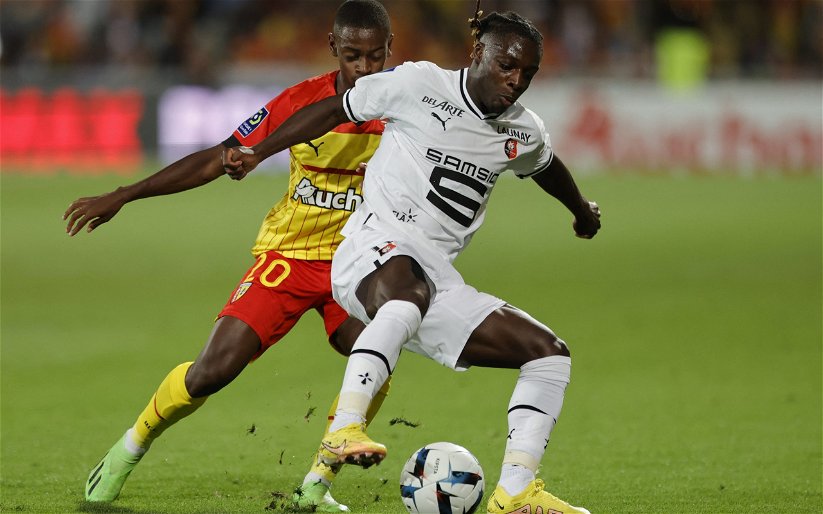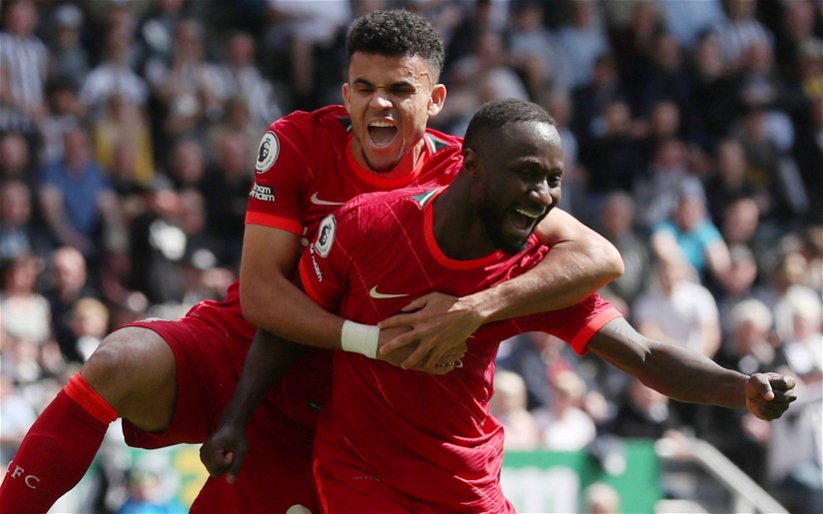 There is no doubting that Rafa Benitez did a superb job in recruiting Pep Segura, Rodolfo Borrell and Frank McParland to oversee the reorganisation of the youth academy last summer. Certainly, bringing in two expert youth coaches who played a big role in the development of youngsters at Barcelona’s famed academy La Masia, can be no bad thing. In the coming years, we expect a marked improvement in the quality of the youngsters coming through from the Kirkby Academy, and that the reorganisation will pay big dividends. Both Borrell and Segura have however come into a youth system completely different to the one they left in Spain. There are crucial differences that lie at the very foundations of English football that could affect how well they do in their respective jobs of Under 18s coach and academy manager.
There is no doubting that Rafa Benitez did a superb job in recruiting Pep Segura, Rodolfo Borrell and Frank McParland to oversee the reorganisation of the youth academy last summer. Certainly, bringing in two expert youth coaches who played a big role in the development of youngsters at Barcelona’s famed academy La Masia, can be no bad thing. In the coming years, we expect a marked improvement in the quality of the youngsters coming through from the Kirkby Academy, and that the reorganisation will pay big dividends. Both Borrell and Segura have however come into a youth system completely different to the one they left in Spain. There are crucial differences that lie at the very foundations of English football that could affect how well they do in their respective jobs of Under 18s coach and academy manager.
The issues are centred on the roles of the FA, Premier League and Football League in youth development, and it prevents a youth system being developed by Liverpool which is similar to Barca’s. One of the most important difficulties to overcome for Liverpool is to get their young players playing competitive football. At the moment, players either play in the reserves where the quality is low, or go on loan to lower league clubs .The fact is that Spanish teams such as Barcelona and Real Madrid rarely loan out their youngsters until they are either deemed not good enough, or they gain experience by playing for another Primera Liga club (e.g. Esteban Granero at Getafe or Alvaro Negredo at Almeria).They prefer to keep training their players between the ages of 18 and 21 at their own club, to continue developing their technical skills and tactical knowledge at Barcelona B or Real Madrid Castilla who are allowed to play in the lower leagues, rather than in a reserve league like the Reds.
What you say is the big difference between loaning out players to other clubs or keeping players at your club and playing in the reserves? For Barca especially, there is a big difference. Keeping them at the club means they can continue to inculcate the philosophy of the club into the players, rather than being loaned to a foreign environment at a different club. They not only instil the style of football which has become world famous, but also schooling and general lifestyle issues are taught at the club. From when they get to La Masia at age of 12 or 13, they are effectively taken away from their families and put into a youth hostel style situation where their guardians are the Barca coaches and staff. This has the consequence of putting them in a controlled environment, where they are not tempted by the trappings that money can provide, i.e late nights and partying. An ordered day, where they educated during the day, train in the evening, and do homework before they go to bed.
It is an academy style that was set up for one particular purpose, to house youngsters who come from all over Spain. It is something which could never happen in England because Premier League clubs are restricted to recruiting kids whose travel to their training ground is within ninety minutes of their home. The rule has good intentions so Premier League clubs can’t muscle in on the turf of smaller Football League clubs who could demand big transfer fees for their players in the future. It is here though where the political infighting in the English game lies. The power struggle between the three big organisations, the Premier League, the Football League and the FA over youth football has grown and grown since the formation of the Premier League in 1992. An uneasy compromise has been agreed, which suits none of the parties and has led to a dearth of English talent in this country. The FA has given in to the Football League big time on this issue and even in League Two, each club gets £230,000 to support their youth set ups. At the same time they have prevented big Premier League clubs from setting up feeder clubs in the lower leagues to send out their young players out on loan. It is a measure designed to protect smaller clubs from the influences of the big teams. In the context of the English game, it seems pretty justifiable that support should be given to smaller clubs but in terms of development for young players the current strategy is misguided.
Not only does it force Premier League clubs to poach young players for free from abroad rather than pay big fees to small English clubs for talented English players, it also fails the youth players it is trying to develop by not giving them the best environment to excel in. Due to catchment area restrictions, rather than being developed at the top class facility such as Liverpool’s academy, players are first developed at smaller clubs before being transferred to Premier League teams. By then though, it is too late to really develop a player properly, at 16, 17 or 18, players have developed habits, deficiencies in some areas which take time to be rectified. For Barca, they see it as best to get them early in their teens to instil the style of football and philosophy that they want.
To ensure this can happen in this country though, a ban on feeder clubs and the restrictions on catchment areas must end. No one wants to see small clubs going out of business because they can’t rely on getting big fees for their youth players, but no one either wants youth players not being developed with the best possible coaching. The status quo will not do. I am not saying Premier League teams should be allowed to have their reserves playing in the Football League but something has to change. At the moment there are many players in the Liverpool reserves who could be playing; with a feeder club this could be made possible in return for large compensation given to the smaller teams. If Borrell and Segura are to succeed in making Liverpool’s academy one of the best in the world, the relations between the Premier League clubs, the Football League and the FA have to change, otherwise we are looking at another decade of mediocrity coming out of the doors of Kirkby.



How to start an unofficial feeder club: LFC ‘sell’ players like Pacheco, Spearing, etc. to, say, Tranmere, for £20 million, payable in instalments (£1 now, £1 in a year £20m in 3 years) If the feeder club decide not to pay the final instalment (and of course that’s what they’d always decide) the ‘sale’contract states that the player reverts to LFC. LFC could press for the final instalment at any stage in the 3 years, so we could recall the player earlier if he was progressing faster than expected.
I don’t think the English footballing authorities are getting it at all. I keep asking why the Pachecos, Mascheranos and Torres’s keep excelling while English players of similar potential retard. It is a matter that can be easily observed and confirmed.
Other countries do safeguard their youngsters, as seen in La Liga clubs keeping their kids till relative maturity, but also allow them to travel away from home and add to their education. In short, they take risks, which English players are actively shielded from. Mascherano as an example began at River Plate before moving to London (West Ham) then Liverpool. His education includes classical South American soccer philosophy and more modern practices in Europe.
Compare that with an overpriced English player, who has hardly got tactical training as observed by Borell at the Academy when he joined. Isn’t that similar to Rafa marveling at an experienced player, Robbie Keane’s lack of tactical awareness on the pitch?
Put aside the rivalry and focus on moving out of English soccer’s comfort zone. If risk-taking among English children is not introduced, they’ll keep wondering why the foreigners like Dani Pacheco or Fabregas will waltz into a very different environment but end up as world class soccer stars.
To me that sums up Rafa’s long-term vision, a confirmation that he is the right manager for Liverpool and very Shankesque in terms of vision.
Dear sir
How you doing? Hope everything is fine with you sir?
To whom it may concern, am writing this email in desire to play football for professional club in Europe . I am BABALOLA SEUN JAMIU by name. Currently leaving at Nigeria I was once playing for 2nd Division in my country Nigeria as a full right back and defensive midfield in academy. I we be really glad if I can get me in your football club in any part in your academy who we like to try me out. Because I don’t so much believe in talking I believe in force and what you can do when re on the field, I can play for 90 minute’s any day any time in as much as am injury free.i will be so great full if you can help me out with my little low carrier over here in Nigeria that is why i decided to drop you this little mail Bellow is my email address and interested club shouldn’t be waste time to call on me and I we be ready to prove my professionalizing. i have skills and i am also strong and i have good passes and am ready to prove my self if you can try me out.Please kinda reply me and try me on. Bye Hope to hear from you soon.
My Information
Name : BABALOLA SEUN JAMIU
Weight : 65 cm
Height : 5:7 ft
Hair: Black
Eye Colour: Brown
Language Speak : English
Place of Birth : Nigeria
State : Ogun State
Country : Nigeria
State : Lagos
Date of Birth : (March 19 1997)
Age: 13 years old
Natural Foot: I use both legs
Position : Midfield and Defensive midfield
Address: N0 37 Abeokuta Street Bariga Lagos.
Email : (babalolaseunsy@yahoo.com) or (babalolaseunsy@gmail.com)
Phone Number : +2348132849022